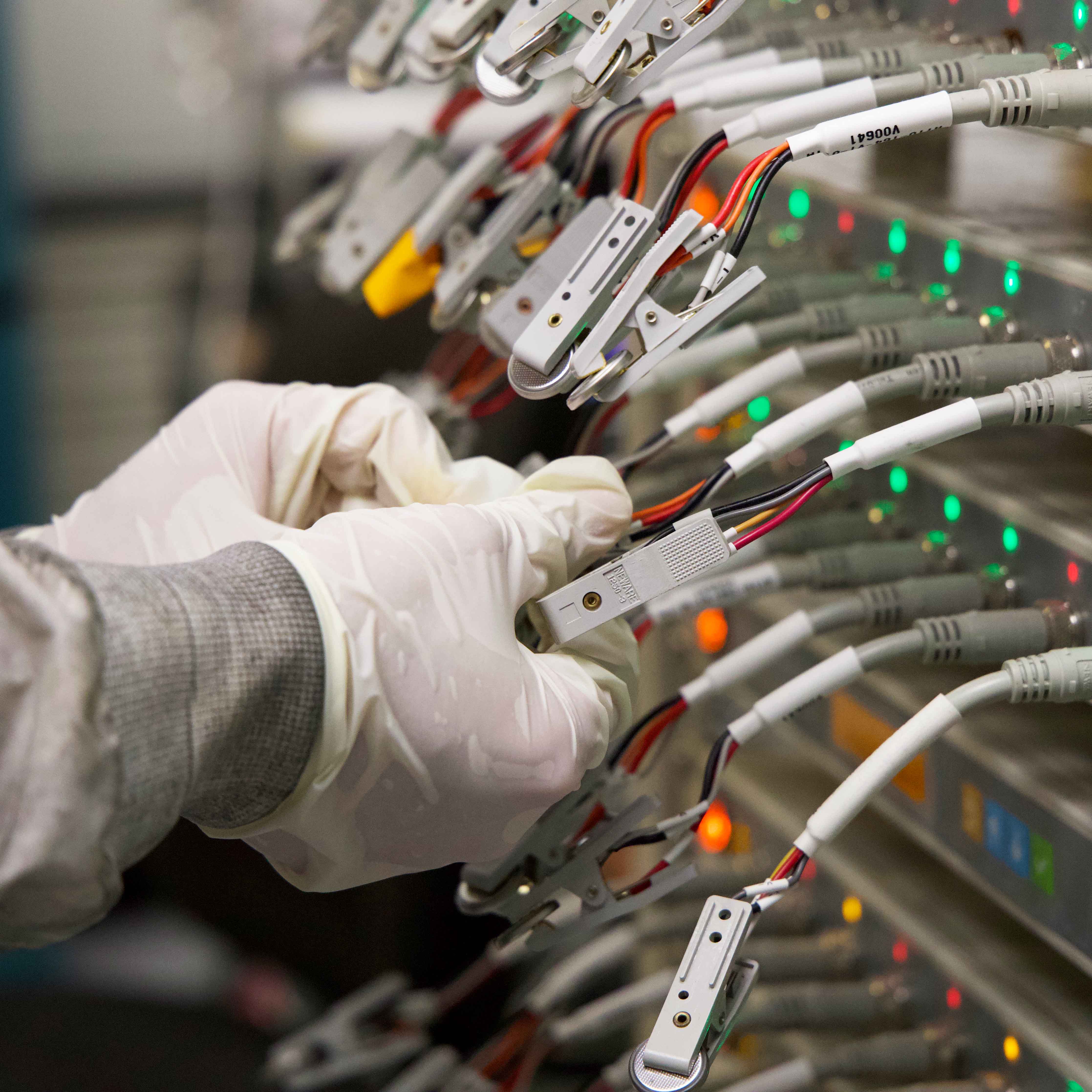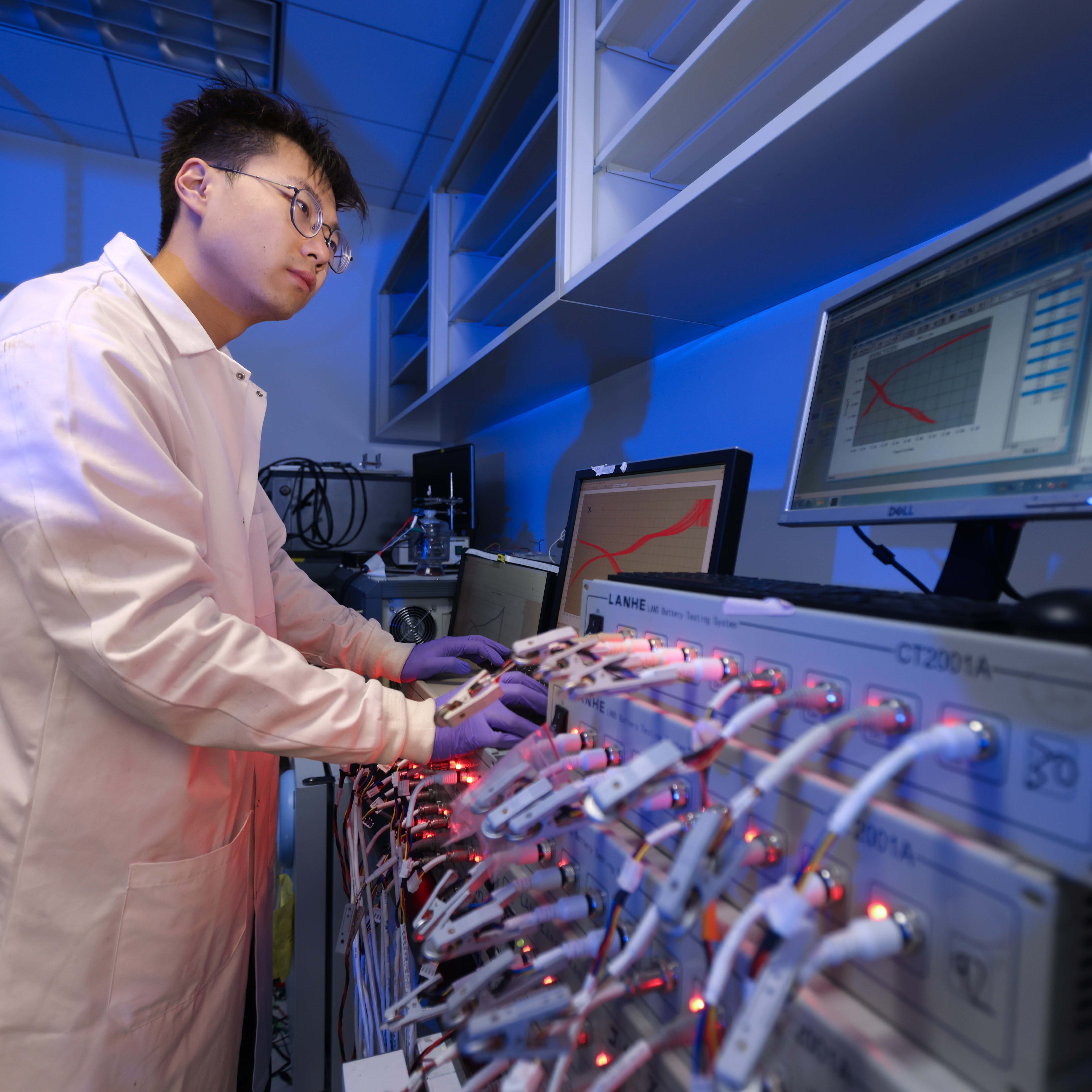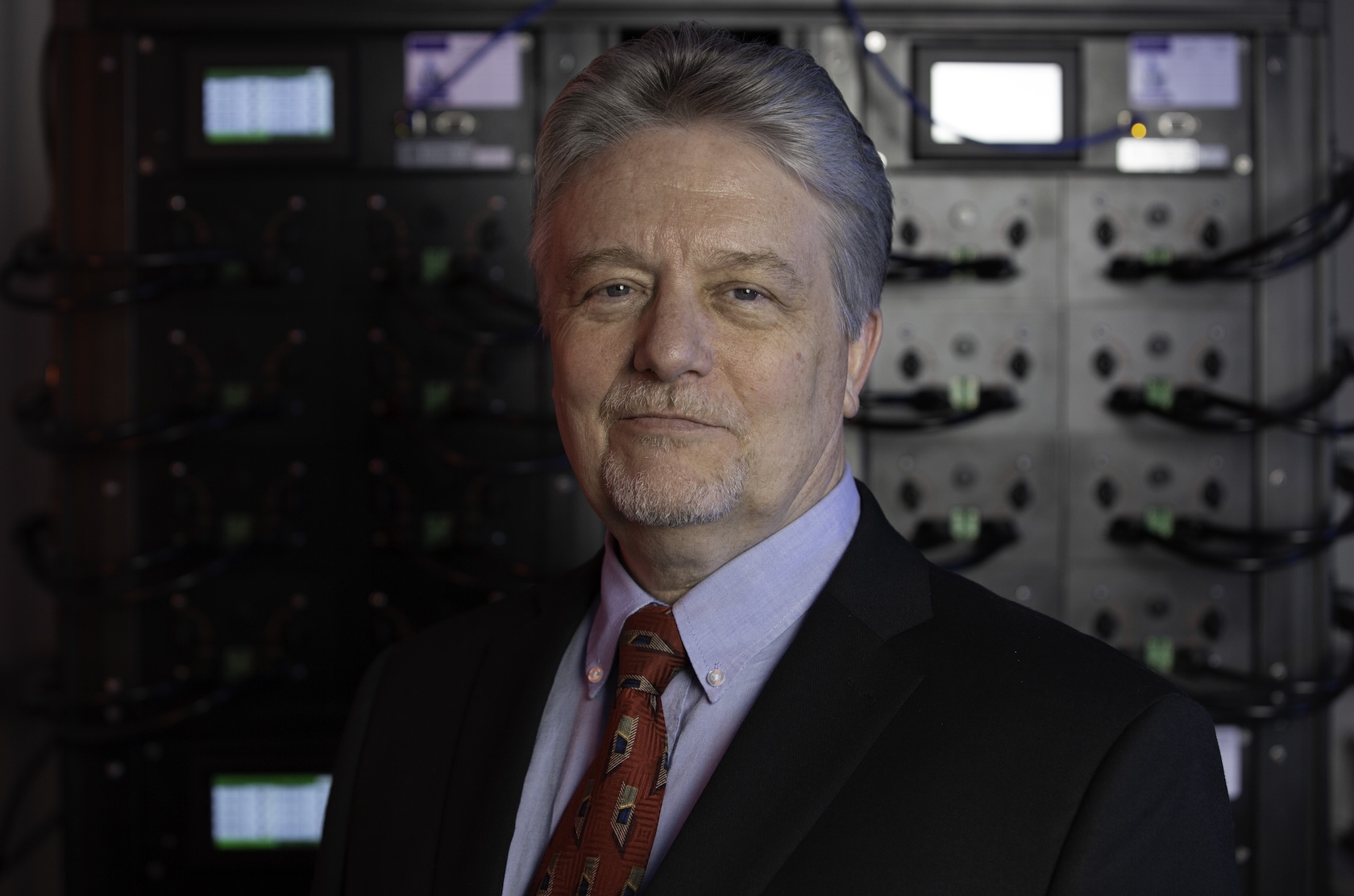News Story
Alumnus' Work on Artificial Intestine Featured in L.A. Times
Efforts to design and grow an artificial intestine by Department of Chemical and Biomolecular Engineering alumnus John March (Ph.D. '05), formerly advised by Fischell Department of Bioengineering professor and chair William Bentley, was recently the subject of an article in the L.A. Times.
March, a professor in the Department of Biological and Environmental Engineering at Cornell University, is developing an alternative to tissue samples cultured in flat Petri dishes. His cells are cultured on a scaffold made of collagen gel (a fibrous protein found in muscle, connective tissue, skin and bone), which has been molded into a multitude of pillar-like formations. As the cells grow, they consume the collagen scaffold, leaving behind a living structure of tall, thin, grass-like columns that resemble villi, the projections that line the interior intestinal wall.
These formations also more accurately simulate the conditions found inside of the intestine, where the quantity of bacteria, oxygen, and other matter varies along the height of its villi, and the different concentrations play a role in how food is digested. This effect cannot be adequately duplicated in cells grown on a flat surface.
For the foreseeable future, the artificial intestine is intended only for research. If March is able to enhance the structure with the additional layers of cells found in a real intestine, however, it has the potential to replace sections of tissue in those who have lost part of the organ to injury or disease. The technique could also be used to simulate or grow other kinds of tissues with rough surfaces or projections, such as taste buds.
Read "Making a better artificial intestine" online at the L.A. Times web site »
Published May 12, 2011









